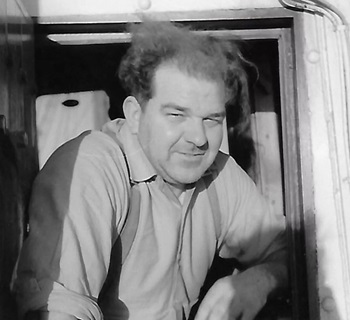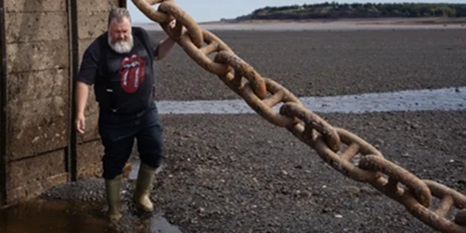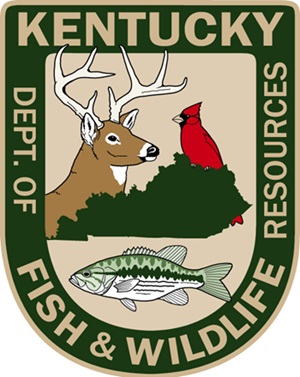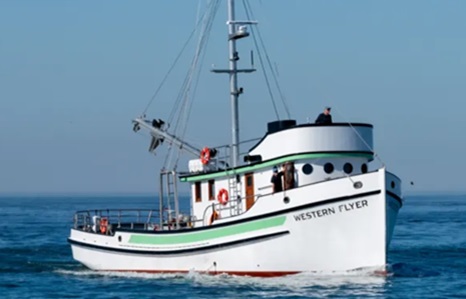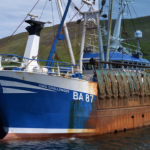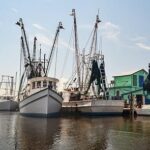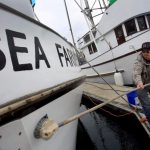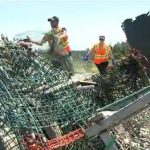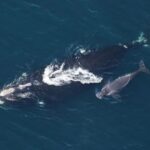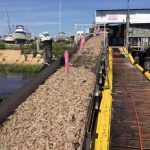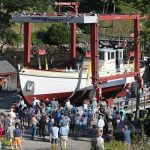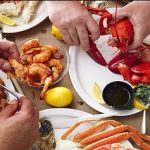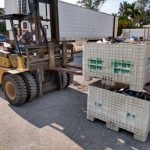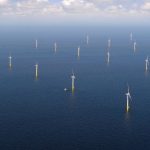Author Archives: borehead - Moderator
Broken blades, angry fishermen, and rising costs slow offshore wind
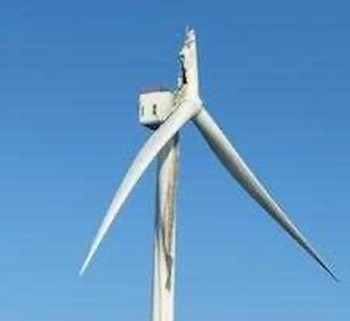 The collapse of a giant wind turbine blade off the Massachusetts coast confirmed Peter Kaizer’s worst fears about the dangers a new clean energy business could pose to fishermen like him. Jagged pieces of fiberglass and other materials from the shattered blade drifted with the tide, forcing officials to close beaches on Nantucket and leaving Kaizer worried about the threat the fragments might pose to his vessel and other fishing boats, especially at night when the debris would be harder to avoid. “All these small boats could be subject to damage,” Kaizer said. “Everyone wants this green legacy, but at the cost of what?” Full article. more, >>CLICK TO READ<< 07:58
The collapse of a giant wind turbine blade off the Massachusetts coast confirmed Peter Kaizer’s worst fears about the dangers a new clean energy business could pose to fishermen like him. Jagged pieces of fiberglass and other materials from the shattered blade drifted with the tide, forcing officials to close beaches on Nantucket and leaving Kaizer worried about the threat the fragments might pose to his vessel and other fishing boats, especially at night when the debris would be harder to avoid. “All these small boats could be subject to damage,” Kaizer said. “Everyone wants this green legacy, but at the cost of what?” Full article. more, >>CLICK TO READ<< 07:58
Maryland Catfish Trail hopes to control invasive species
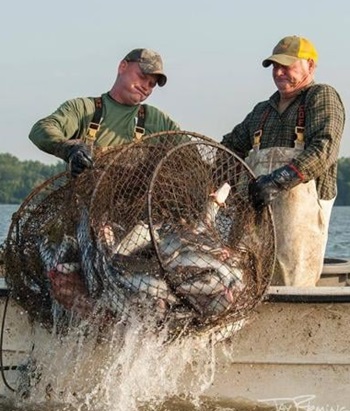 It’s early afternoon on a comfortable Sunday when Keith Bradfield and his brother Ray pull up to the Smallwood State Park dock after a long day of fishing. And they’ve been successful. Very successful. The Fairfax, Va., resident pulls up the lid of the cooler to reveal it stuffed with invasive blue catfish up to about 30 pounds each. Bradfield, who shows an image of his sonar lit up like a Christmas tree signifying the invasive species, said he looks for the fish in the deepest holes of the river, “but they’re pretty much everywhere.” And the blue catfish’s population has become such a problem that the state recently initiated a Maryland Catfish Trail where anglers can target fellow invasive flathead catfish and snakeheads in an attempt to help lower their numbers. Photos, more, >>CLICK TO READ<< 06:39
It’s early afternoon on a comfortable Sunday when Keith Bradfield and his brother Ray pull up to the Smallwood State Park dock after a long day of fishing. And they’ve been successful. Very successful. The Fairfax, Va., resident pulls up the lid of the cooler to reveal it stuffed with invasive blue catfish up to about 30 pounds each. Bradfield, who shows an image of his sonar lit up like a Christmas tree signifying the invasive species, said he looks for the fish in the deepest holes of the river, “but they’re pretty much everywhere.” And the blue catfish’s population has become such a problem that the state recently initiated a Maryland Catfish Trail where anglers can target fellow invasive flathead catfish and snakeheads in an attempt to help lower their numbers. Photos, more, >>CLICK TO READ<< 06:39
Fishing Vessel Eternal Promise – Scotland’s Whitelink Seafoods welcomes new scalloper to coastal fleet
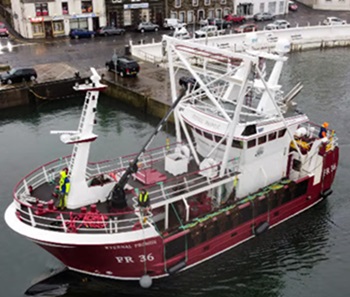 Macduff Shipyards of Scotland recently handed over a new scallop fishing vessel ordered by local owner Whitelink Seafoods for year-round operation around the coastal waters of the UK. Designed by Macduff Ship Design, Eternal Promise measures 19.98 by 7.4 metres (65.66 by 24 feet) and has space for seven crewmembers. It is the second vessel built by Macduff Shipyards for Whitelink after an earlier vessel handed over in 2019. The newbuild was originally intended to be a sister ship to the previous vessel, but a decision was taken by the yard and the owner to build a new design that would offer increased deck/fishing gear space, improved crew welfare, a more efficient hull form, and a new stern gear package with an aim to improve overall fuel efficiency. photos, specifications and more, >>CLICK TO READ<< 18:50
Macduff Shipyards of Scotland recently handed over a new scallop fishing vessel ordered by local owner Whitelink Seafoods for year-round operation around the coastal waters of the UK. Designed by Macduff Ship Design, Eternal Promise measures 19.98 by 7.4 metres (65.66 by 24 feet) and has space for seven crewmembers. It is the second vessel built by Macduff Shipyards for Whitelink after an earlier vessel handed over in 2019. The newbuild was originally intended to be a sister ship to the previous vessel, but a decision was taken by the yard and the owner to build a new design that would offer increased deck/fishing gear space, improved crew welfare, a more efficient hull form, and a new stern gear package with an aim to improve overall fuel efficiency. photos, specifications and more, >>CLICK TO READ<< 18:50
Lebouthillier Ignored Scientific Advice on Reopening Cod Fishery
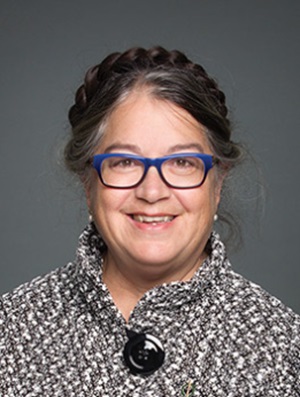 Federal Fisheries Minister Diane Lebouthillier faced criticism for disregarding advice from the Department of Fisheries and Oceans (DFO) when she reopened the commercial cod fishery off Newfoundland and Labrador earlier this year, a decision largely influenced by political considerations. Patrick Butler of Radio Canada reports that a DFO briefing note from 09 May 2024 uncovered by reveals that the department recommended maintaining the longstanding moratorium on northern cod, citing scientific evidence of the stock’s vulnerability. However, political advisors within the minister’s office advocated for reopening the fishery and increasing cod quotas, viewing it as a “political victory.” Senior policy advisor Paul Carrigan expressed concerns from DFO staff about the risk of stock decline due to higher quotas and the return of offshore vessels. The department had recommended keeping the total allowable catch at 13,000 tonnes, the same level as in 2022 and 2023, while maintaining a limited stewardship fishery solely for inshore harvesters. more, >>CLICK TO READ<< 12:05
Federal Fisheries Minister Diane Lebouthillier faced criticism for disregarding advice from the Department of Fisheries and Oceans (DFO) when she reopened the commercial cod fishery off Newfoundland and Labrador earlier this year, a decision largely influenced by political considerations. Patrick Butler of Radio Canada reports that a DFO briefing note from 09 May 2024 uncovered by reveals that the department recommended maintaining the longstanding moratorium on northern cod, citing scientific evidence of the stock’s vulnerability. However, political advisors within the minister’s office advocated for reopening the fishery and increasing cod quotas, viewing it as a “political victory.” Senior policy advisor Paul Carrigan expressed concerns from DFO staff about the risk of stock decline due to higher quotas and the return of offshore vessels. The department had recommended keeping the total allowable catch at 13,000 tonnes, the same level as in 2022 and 2023, while maintaining a limited stewardship fishery solely for inshore harvesters. more, >>CLICK TO READ<< 12:05
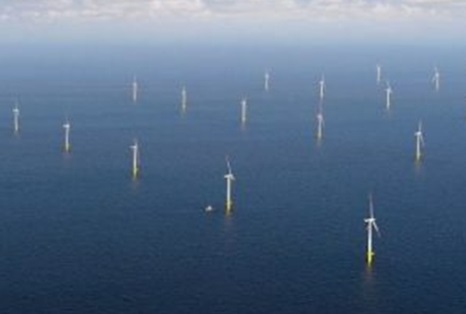
U.S. Offshore Wind: Election 2024 May Redefine the Sector
The US offshore wind industry is at a crucial turning point. After several years of growth under the Biden administration, the sector faces potential reconfiguration depending on the outcome of the 2024 presidential election. On the one hand, a Donald Trump victory could redirect the country’s energy priorities towards conventional resources, such as offshore oil and gas. On the other, a Kamala Harris victory would mean a continuation of current ambitions, including the goal of 30 GW of installed capacity by 2030. Commercial fishing groups and other interested parties challenging these projects could find an ally in a Trump administration. Organizations such as the New England Fishermen’s Stewardship Association (NEFSA) have already voiced concerns about the impacts of offshore wind projects on the marine environment and fisheries. more, >>CLOCK TO READ<< 10:36
Fishing group expresses concern about oil spill in Saulnierville Harbour
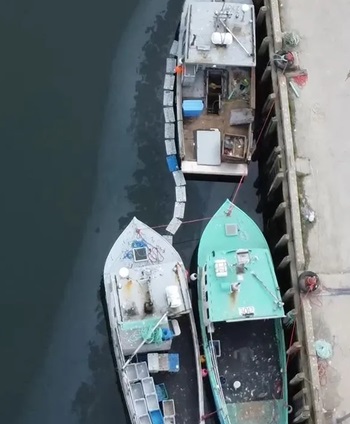 A fishing organization is concerned that a recent oil spill near the government wharf in Saulnierville, N.S., could make people sick and have disastrous implications for the province’s seafood industry if it’s not addressed as soon as possible. The Unified Fisheries Conservation Alliance released video on Thursday of fishing vessels along the wharf surrounded by oil. Tied to some of those boats are crates of lobster floating in the water. “When we saw it we were pretty shocked,” Colin Sproul, the alliance president said in an interview. “We’re really concerned that oil-soaked lobster is going to make it into the marketplace and make people sick.” Officials with the federal government have not yet responded to requests for comment. more, >>CLICK TO READ<< 08:44
A fishing organization is concerned that a recent oil spill near the government wharf in Saulnierville, N.S., could make people sick and have disastrous implications for the province’s seafood industry if it’s not addressed as soon as possible. The Unified Fisheries Conservation Alliance released video on Thursday of fishing vessels along the wharf surrounded by oil. Tied to some of those boats are crates of lobster floating in the water. “When we saw it we were pretty shocked,” Colin Sproul, the alliance president said in an interview. “We’re really concerned that oil-soaked lobster is going to make it into the marketplace and make people sick.” Officials with the federal government have not yet responded to requests for comment. more, >>CLICK TO READ<< 08:44
Animal Protection Party of Canada calls for the resignation of Canada’s Fisheries Minister
 The Animal Protection Party of Canada calls for Prime Minister Trudeau to remove Diane Lebouthillier from her role as Fisheries Minister. “Canadians deserve ministers more committed to integrity and respect for science than political expediency,” says Party Leader, Liz White. White is reacting to a September 10th report by Radio-Canada’s Patrick Butler about a briefing note clearly explaining that staff with the Department of Fisheries recommended that the Minister keep the moratorium on northern cod in order to prevent a further decline in the population of fish. They also recommended that the current quota be maintained and not increased, and that she keep in place the ‘stewardship fishery’ meaning that fishing should be prioritized for inshore and Indigenous fishers and not for offshore and international fleets. more, >>CLICK TO READ<< 07:42
The Animal Protection Party of Canada calls for Prime Minister Trudeau to remove Diane Lebouthillier from her role as Fisheries Minister. “Canadians deserve ministers more committed to integrity and respect for science than political expediency,” says Party Leader, Liz White. White is reacting to a September 10th report by Radio-Canada’s Patrick Butler about a briefing note clearly explaining that staff with the Department of Fisheries recommended that the Minister keep the moratorium on northern cod in order to prevent a further decline in the population of fish. They also recommended that the current quota be maintained and not increased, and that she keep in place the ‘stewardship fishery’ meaning that fishing should be prioritized for inshore and Indigenous fishers and not for offshore and international fleets. more, >>CLICK TO READ<< 07:42
Ocean Integrity vs. Offshore Wind
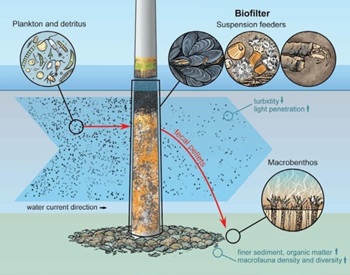 “In areas where wind farms are being developed, invasive species can harm … industries by reducing fish populations, damaging habitats, and deterring tourists who seek intact and diverse marine environments.” – Kieran Kelly, Ocean Integrity (below) ‘It is hard being green, particularly when “green” means being one-dimensional against carbon dioxide (CO2) at the expense of virtually every other metric. Consider wind power, the onshore problems of which (failed past, government dependency, intermittency, site depletion, local warming, noise, avian mortality, health effects) are only magnified offshore (cost premium, wake effect, blade failure, industrialization, hurricanes, pile driving, political bribes). Kieran Kelly, CEO of Ocean Integrity, “a global organization that aims to reduce ocean plastic pollution and create positive social impact,” recently reported on social media about a particular ecological issue: invasive filter feeders. more, >>CLICK TO READ<< 06:38
“In areas where wind farms are being developed, invasive species can harm … industries by reducing fish populations, damaging habitats, and deterring tourists who seek intact and diverse marine environments.” – Kieran Kelly, Ocean Integrity (below) ‘It is hard being green, particularly when “green” means being one-dimensional against carbon dioxide (CO2) at the expense of virtually every other metric. Consider wind power, the onshore problems of which (failed past, government dependency, intermittency, site depletion, local warming, noise, avian mortality, health effects) are only magnified offshore (cost premium, wake effect, blade failure, industrialization, hurricanes, pile driving, political bribes). Kieran Kelly, CEO of Ocean Integrity, “a global organization that aims to reduce ocean plastic pollution and create positive social impact,” recently reported on social media about a particular ecological issue: invasive filter feeders. more, >>CLICK TO READ<< 06:38
Fifty years plus: Jeniska KY 253
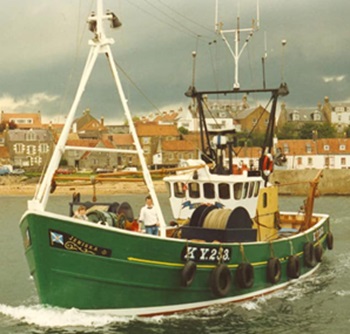 It was a still night after the previous day’s gale, the darkness reduced by the lights from the town, a slight smirr damping all around. The boats were in alongside Campbeltown quay, and unloading had begun. Four boats, each with boxes of prawns sitting on the deck or being hauled up to the waiting hands. The four boats – Silver Fern OB 84, Silver Lining III TT 37 (built as Emulate KY 44), Adoration II CN 78 and Jeniska CN 153 are all over 50 years old, with one, Adoration II, being almost 60. All are now working at the prawns, with a chequered history. But it was Jeniska I’d really come to see and here she was, water gently lapping at her old hull as her crew unloaded their catch. Jeniska was built by JN Miller and Sons of St Monans in 1971 and was commissioned by William H Anderson and John Fleming of Kilrenny in Fife. At 15.66m (56ft) in length, she was fitted with a Gardner 8L3B 229hp. She was one the dual- purpose seiner/trawlers for which Miller’s was renowned, all with the classic transom sterns. Photos, more, >>CLICK TO READ<< 17:19
It was a still night after the previous day’s gale, the darkness reduced by the lights from the town, a slight smirr damping all around. The boats were in alongside Campbeltown quay, and unloading had begun. Four boats, each with boxes of prawns sitting on the deck or being hauled up to the waiting hands. The four boats – Silver Fern OB 84, Silver Lining III TT 37 (built as Emulate KY 44), Adoration II CN 78 and Jeniska CN 153 are all over 50 years old, with one, Adoration II, being almost 60. All are now working at the prawns, with a chequered history. But it was Jeniska I’d really come to see and here she was, water gently lapping at her old hull as her crew unloaded their catch. Jeniska was built by JN Miller and Sons of St Monans in 1971 and was commissioned by William H Anderson and John Fleming of Kilrenny in Fife. At 15.66m (56ft) in length, she was fitted with a Gardner 8L3B 229hp. She was one the dual- purpose seiner/trawlers for which Miller’s was renowned, all with the classic transom sterns. Photos, more, >>CLICK TO READ<< 17:19
Hammond crab fisherman serving jail time for illegal pots
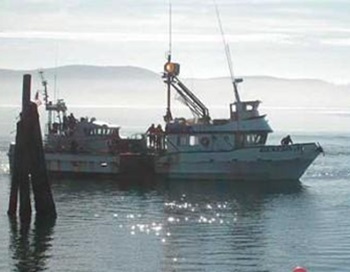 A North Coast man recently found guilty following a 2007 commercial crab enforcement operation off the Oregon Coast began serving his sentence last week in Tillamook County. Dennis Sturgell, 56, of Hammond was lodged in Tillamook County Jail to serve a 30-day sentence after he pleaded guilty in Tillamook County Circuit Court Feb. 6 to two counts of unlawful use of commercial crab pots. Tillamook County Circuit Court Judge Rick Roll handed down a sentence of 30 days and $41,200 in restitution to the Oregon Department of Fish and Wildlife Commercial Fish Fund. The conviction was the result of a 2007 case when the Washington Department of Fish and Wildlife and Oregon State Police Fish and Wildlife Division conducted a joint enforcement operation. That was the first year the state of Oregon introduced a limit on the number of commercial crab pots that any one vessel could fish. more, >>CLICK TO READ<< 14:05
A North Coast man recently found guilty following a 2007 commercial crab enforcement operation off the Oregon Coast began serving his sentence last week in Tillamook County. Dennis Sturgell, 56, of Hammond was lodged in Tillamook County Jail to serve a 30-day sentence after he pleaded guilty in Tillamook County Circuit Court Feb. 6 to two counts of unlawful use of commercial crab pots. Tillamook County Circuit Court Judge Rick Roll handed down a sentence of 30 days and $41,200 in restitution to the Oregon Department of Fish and Wildlife Commercial Fish Fund. The conviction was the result of a 2007 case when the Washington Department of Fish and Wildlife and Oregon State Police Fish and Wildlife Division conducted a joint enforcement operation. That was the first year the state of Oregon introduced a limit on the number of commercial crab pots that any one vessel could fish. more, >>CLICK TO READ<< 14:05
Fiercest fisherman roils crabbing world – He has filled boats with crab and fish, and he has kept law enforcement busy. more, >>CLICK TO READ<<
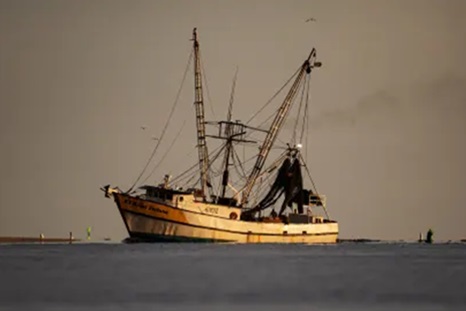
Shrimp scurry from Hurricane Francine storm surge, filling fishing nets of struggling shrimpers
Hurricane Francine closed in on Terrebonne and Lafourche with 100 mph winds Sept. 11. As the storm pushed tidal waters toward land, shrimp scurried for inland waters. Shrimpers took advantage of the migration, dropping nets and pulling in thousands of pounds in a short timeframe. The hauls were great, but the low prices meant what would have been a drop in the bucket, instead fell in an empty pail. “We did good last night and the night before,” Jonathan Guidry said. “The shrimp was jumpin’ all over. They had some land nets on side of us. They was startin’ to pick up every 10 minutes, and they had maybe 120 to 130 pounds every 10 to 30 minutes.” Guidry said with all the flood gates closed, he thinks the shrimp were funneled through the Bubba Dove lock gate as they sought safety from the storm. more, >>CLICK TO READ<< 12:11
In cod we trust: Newfoundland’s famous fish aims at a comeback, but not everyone’s happy
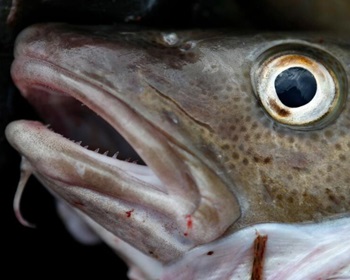 By 1992, the mighty cod had been fished to near oblivion, and the federal government declared a moratorium, indefinitely closing the industry in the hopes that the cod stock could rebuild itself over time. Some 30,000 Newfoundlanders lost their jobs and 10 per cent of the population headed west to Ontario, Alberta and beyond to find work in a mass outmigration the province has never fully recovered from. But if there is one truth in this life, it is that it is hard not to root for a good comeback story. Cod, in theory, was positioned to be such a comeback kid this summer when the federal government in June announced that the moratorium on the commercial cod fishery was being lifted after 32 years. Yet instead of parades, parties and fireworks, the announcement was met with discontent, particularly among small, inshore fish harvesters. That is, the skippers and salty olde sea dogs and their crews, wresting a living from the sea in small, 15-metre boats or less, who claim the end of the moratorium and return of the massive offshore “draggers” to the cod fishery is the beginning of the end for the North Atlantic cod 2.0. photos, more, >>CLICK TO READ<< 09:10
By 1992, the mighty cod had been fished to near oblivion, and the federal government declared a moratorium, indefinitely closing the industry in the hopes that the cod stock could rebuild itself over time. Some 30,000 Newfoundlanders lost their jobs and 10 per cent of the population headed west to Ontario, Alberta and beyond to find work in a mass outmigration the province has never fully recovered from. But if there is one truth in this life, it is that it is hard not to root for a good comeback story. Cod, in theory, was positioned to be such a comeback kid this summer when the federal government in June announced that the moratorium on the commercial cod fishery was being lifted after 32 years. Yet instead of parades, parties and fireworks, the announcement was met with discontent, particularly among small, inshore fish harvesters. That is, the skippers and salty olde sea dogs and their crews, wresting a living from the sea in small, 15-metre boats or less, who claim the end of the moratorium and return of the massive offshore “draggers” to the cod fishery is the beginning of the end for the North Atlantic cod 2.0. photos, more, >>CLICK TO READ<< 09:10
Coos County Commissioners question offshore wind farms
 Coos County commissioners have a number of questions and concerns about a proposed offshore wind farm. In a letter dated Sept. 3 to Gov. Tina Kotek, Commissioners Rod Taylor, John Sweet and Robert “Bob” Main have posed several questions they would like the state to ask the U.S. Bureau of Ocean Energy Management (BOEM). On Aug. 29, the U.S. Department of Interior, which encompasses BOEM, announced the final sale notice for offshore wind leasing for one site offshore 10-15 miles between Reedsport and Florence and another 6-10 miles offshore between Brookings and Gold Beach. Commissioners are raising their questions as the result of the “current environmental crisis” that has occurred off Nantucket, MA, resulting from wind turbine blade failures and breakage. The commissioners also are sending their questions to other coastal county commissioners “in hope that they too will voice their concerns with BOEM’s offshore wind plan in Oregon.” more, >>CLICK TO READ<< 07:49
Coos County commissioners have a number of questions and concerns about a proposed offshore wind farm. In a letter dated Sept. 3 to Gov. Tina Kotek, Commissioners Rod Taylor, John Sweet and Robert “Bob” Main have posed several questions they would like the state to ask the U.S. Bureau of Ocean Energy Management (BOEM). On Aug. 29, the U.S. Department of Interior, which encompasses BOEM, announced the final sale notice for offshore wind leasing for one site offshore 10-15 miles between Reedsport and Florence and another 6-10 miles offshore between Brookings and Gold Beach. Commissioners are raising their questions as the result of the “current environmental crisis” that has occurred off Nantucket, MA, resulting from wind turbine blade failures and breakage. The commissioners also are sending their questions to other coastal county commissioners “in hope that they too will voice their concerns with BOEM’s offshore wind plan in Oregon.” more, >>CLICK TO READ<< 07:49
Fire at sea: US Coast Guard rescues two from commercial boat fire near Salish Sea
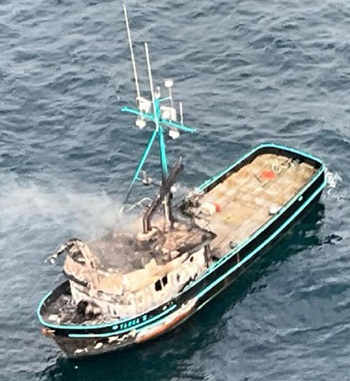 The U.S. Coast Guard, Puget Sound Sector rescued two from a life raft after a fire broke out on the commercial boat they were on. On Tuesday, the Sector Command Center of the U.S. Coast Guard received a call from a boat about 3 nautical miles from Cape Flattery reporting a fire on board. Five miles off Tatoosh Island, near the Makah Tribal Reservation, the F/V Tarka II reported an emergency before abandoning the boat and getting onto a life raft. A Motor Lifeboat from Coast Guard Station Neah Bay rescued the two people in the raft and brought them back to shore. more, >>CLICK TO READ<< 06:24
The U.S. Coast Guard, Puget Sound Sector rescued two from a life raft after a fire broke out on the commercial boat they were on. On Tuesday, the Sector Command Center of the U.S. Coast Guard received a call from a boat about 3 nautical miles from Cape Flattery reporting a fire on board. Five miles off Tatoosh Island, near the Makah Tribal Reservation, the F/V Tarka II reported an emergency before abandoning the boat and getting onto a life raft. A Motor Lifeboat from Coast Guard Station Neah Bay rescued the two people in the raft and brought them back to shore. more, >>CLICK TO READ<< 06:24
Hurricane Francine is predicted to make landfall west of New Orleans
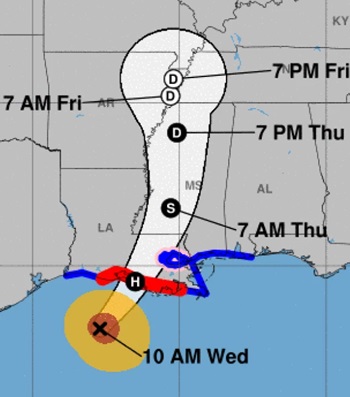 Hurricane Francine is crossing over warm waters in the western Gulf of Mexico, and it has Louisiana’s coast — and the greater New Orleans area — in its sights, according to the National Hurricane Center’s latest forecast. The storm became a hurricane Tuesday night; its maximum sustained winds are now topping 90 mph. As of 10 a.m. CT, Francine was about 150 miles southwest of Morgan City, La., moving northeast at 13 mph. “Francine is anticipated to make landfall in Louisiana … late this afternoon or evening,” the hurricane center said on Wednesday. If the storm surge coincides with high tide, water could reach 5 to 10 feet above ground in areas from Louisiana’s Intracoastal City and Vermilion Bay to Port Fourchon. The hurricane’s outer bands of rain began hitting Lafayette, Baton Rouge and other areas in southern Louisiana Wednesday morning. In the gulf, an oil platform north of the center recently reported a peak gust of 105 mph, the NHC said. more, >>CLICK TO READ<< 14:21
Hurricane Francine is crossing over warm waters in the western Gulf of Mexico, and it has Louisiana’s coast — and the greater New Orleans area — in its sights, according to the National Hurricane Center’s latest forecast. The storm became a hurricane Tuesday night; its maximum sustained winds are now topping 90 mph. As of 10 a.m. CT, Francine was about 150 miles southwest of Morgan City, La., moving northeast at 13 mph. “Francine is anticipated to make landfall in Louisiana … late this afternoon or evening,” the hurricane center said on Wednesday. If the storm surge coincides with high tide, water could reach 5 to 10 feet above ground in areas from Louisiana’s Intracoastal City and Vermilion Bay to Port Fourchon. The hurricane’s outer bands of rain began hitting Lafayette, Baton Rouge and other areas in southern Louisiana Wednesday morning. In the gulf, an oil platform north of the center recently reported a peak gust of 105 mph, the NHC said. more, >>CLICK TO READ<< 14:21
Flawed fisheries science ’cause for concern’
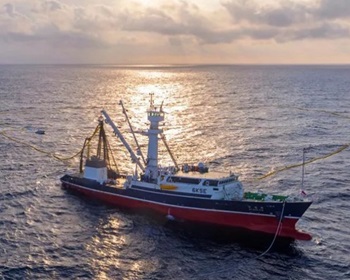 An article just published in the respected science journal Marine Policy highlights the need for objective and reliable fisheries science to ensure conservation and sustainable development. It says the publication of flawed papers, some in high-profile journals, is cause for concern, and that misleading science can misinform policy and the public. The authors, who include well-known US fisheries scientist Professor Ray Hilborn, call for the rigour of peer reviews and editorial management to be strengthened, and say journal publishers must ensure the reliability of papers they publish. “The prevalence of papers conveying unjustified messages and with the potential to influence public perceptions and policies is concerning,” they say, providing examples where flawed methodology led to the exaggeration of negative impacts on ecosystems by the fishing industry – which was often then sensationalised by campaigners. In all of the examples quoted, a rebuttal was subsequently published. more, >>CLICK TO READ<< 12:46
An article just published in the respected science journal Marine Policy highlights the need for objective and reliable fisheries science to ensure conservation and sustainable development. It says the publication of flawed papers, some in high-profile journals, is cause for concern, and that misleading science can misinform policy and the public. The authors, who include well-known US fisheries scientist Professor Ray Hilborn, call for the rigour of peer reviews and editorial management to be strengthened, and say journal publishers must ensure the reliability of papers they publish. “The prevalence of papers conveying unjustified messages and with the potential to influence public perceptions and policies is concerning,” they say, providing examples where flawed methodology led to the exaggeration of negative impacts on ecosystems by the fishing industry – which was often then sensationalised by campaigners. In all of the examples quoted, a rebuttal was subsequently published. more, >>CLICK TO READ<< 12:46
Fire on a fishing boat in Newlyn Harbour last night.
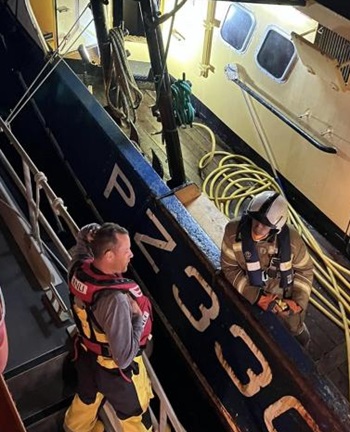 A crewman collapsed and needed medical treatment after escaping a fire on a fishing boat in Newlyn Harbour last night. Emergency services, including the Penlee Lifeboat Ivan Ellen, were called to a 25m fishing boat on fire at 11.12pm last night (September 10). One crewman had escaped the boat which was well alight but there were concerns that there may be more crew inside. The Penlee Lifeboat was the first to arrive at the scene and moored alongside the fishing vessel tackling the fire coming from the galley area with two sea water hoses. photos, more, >>LICK TO READ<< 10:36
A crewman collapsed and needed medical treatment after escaping a fire on a fishing boat in Newlyn Harbour last night. Emergency services, including the Penlee Lifeboat Ivan Ellen, were called to a 25m fishing boat on fire at 11.12pm last night (September 10). One crewman had escaped the boat which was well alight but there were concerns that there may be more crew inside. The Penlee Lifeboat was the first to arrive at the scene and moored alongside the fishing vessel tackling the fire coming from the galley area with two sea water hoses. photos, more, >>LICK TO READ<< 10:36
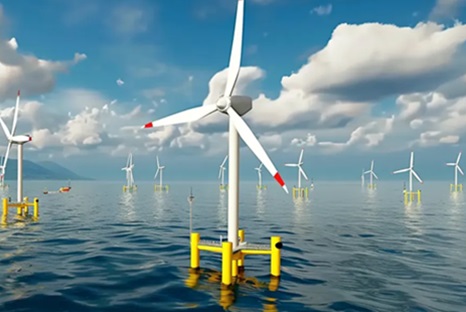
California’s trillion dollars floating wind fantasy
California has adopted a target of 25,000 MW of floating offshore wind generation capacity. Of course, the cost is never mentioned, so here is a rough estimate to get the ball rolling. The estimate begins with the huge Dominion Energy (DOM) fixed wind project currently under construction off of Virginia. Because the regulated utility DOM is its own developer, we get some public numbers, so here is a crude derivation. Big numbers are rounded for simplicity and ease of memory. A. DOM says the 2,600 MW facility will cost $10 billion to build, which is about $4 billion/GW. But financing and profit bump that to $20 billion or $8 billion/GW, which is called the “revenue requirement” or what rate payers will pay. We will use that number. more, >>CLICK TO READ<< 09:19
Ottawa still hasn’t learned to choose science over politics in the cod fishery, says Gerry Byrne
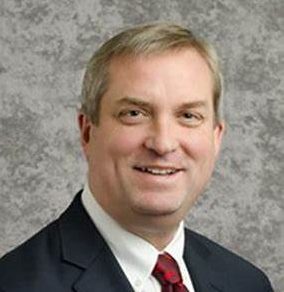 Newfoundland and Labrador’s fisheries minister says he was disturbed to learn federal Fisheries Minister Diane Lebouthillier ignored the advice of staff in reopening the commercial cod fishery. Gerry Byrne said Tuesday the decision to reopen the fishery, announced in June, wasn’t based on industry science. “The view that we saw was very, very disturbing. It is about politics,” Byrne said Tuesday. “We thought we were at a place where politics would be removed from this decision-making process, because it was politics that brought us here to begin with.” Byrne called the findings a gut punch to those working in the industry and the people of Newfoundland and Labrador. more, >>CLICK TO READ<< 07:47
Newfoundland and Labrador’s fisheries minister says he was disturbed to learn federal Fisheries Minister Diane Lebouthillier ignored the advice of staff in reopening the commercial cod fishery. Gerry Byrne said Tuesday the decision to reopen the fishery, announced in June, wasn’t based on industry science. “The view that we saw was very, very disturbing. It is about politics,” Byrne said Tuesday. “We thought we were at a place where politics would be removed from this decision-making process, because it was politics that brought us here to begin with.” Byrne called the findings a gut punch to those working in the industry and the people of Newfoundland and Labrador. more, >>CLICK TO READ<< 07:47
Athearn Marine Agency Boat of the Week: 60’x18’x9′ Astor Longliner, Cummins KT 1150
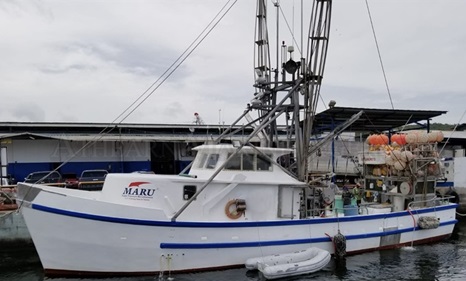 To review specifications, information, and 15 photos’, >click here< To see all the boats in this series, >click here< 06:46
To review specifications, information, and 15 photos’, >click here< To see all the boats in this series, >click here< 06:46
Hurricane Francine bears down on Louisiana: Here’s when and where to expect landfall
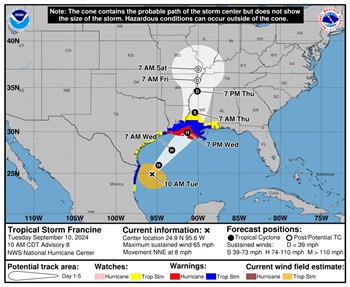 Hurricane Francine is bearing down on Louisiana with an expected landfall Wednesday afternoon packing winds of up to 100 mph as a potential Category 2 hurricane. Landfall impact remains likely at or near Vermilion Bay, but Louisiana State Climatologist Jay Grymes said Francine’s track is shifting slightly to the east, which places the state Capitol of Baton Rouge in peril on the eastern side of the storm. “The real action begins Wednesday morning with tropical storm winds before landfall mid-afternoon or evening,” Grymes said during Tuesday’s news conference with Gov. Jeff Landry. “The forecast is for a storm surge of 6-10 feet in Vermilion Bay, but the track has moved ever so slightly east so now Baton Rouge is under the gun. more, >>CLICK TO READ<< 14:20
Hurricane Francine is bearing down on Louisiana with an expected landfall Wednesday afternoon packing winds of up to 100 mph as a potential Category 2 hurricane. Landfall impact remains likely at or near Vermilion Bay, but Louisiana State Climatologist Jay Grymes said Francine’s track is shifting slightly to the east, which places the state Capitol of Baton Rouge in peril on the eastern side of the storm. “The real action begins Wednesday morning with tropical storm winds before landfall mid-afternoon or evening,” Grymes said during Tuesday’s news conference with Gov. Jeff Landry. “The forecast is for a storm surge of 6-10 feet in Vermilion Bay, but the track has moved ever so slightly east so now Baton Rouge is under the gun. more, >>CLICK TO READ<< 14:20
Norbert Cunningham: Coast Guard can stop poaching
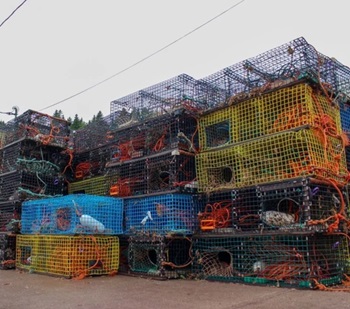 Lobster is a lucrative fishery in Maine and New Brunswick, and it’s past time for the federal Department of Fisheries and Oceans (DFO) to step in an act decisively against American poachers. They can begin with sending in Coast Guard ships to drive intruders out while also initiating another attempt at a better resolution with U.S. authorities. The tensions aren’t new, nor is this the first such flare-up in our waters, but it may be one of the worst and have the most potential for lethal violence. Canadian fishers are seeing evidence and hearing the latest incursions are the work of organized crime, not just fishers straying a bit over unmarked and disputed lines on water. more, >>CLICK TO READ<< 12:08
Lobster is a lucrative fishery in Maine and New Brunswick, and it’s past time for the federal Department of Fisheries and Oceans (DFO) to step in an act decisively against American poachers. They can begin with sending in Coast Guard ships to drive intruders out while also initiating another attempt at a better resolution with U.S. authorities. The tensions aren’t new, nor is this the first such flare-up in our waters, but it may be one of the worst and have the most potential for lethal violence. Canadian fishers are seeing evidence and hearing the latest incursions are the work of organized crime, not just fishers straying a bit over unmarked and disputed lines on water. more, >>CLICK TO READ<< 12:08
Celebrate wild sockeye salmon — the harvest that powers Bristol Bay’s economy and feeds the world
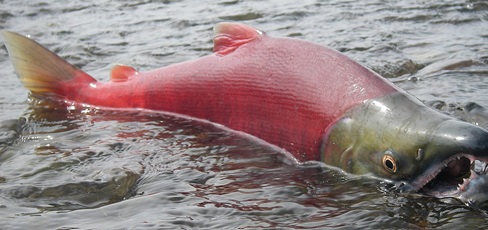 It’s the time of year again when children have returned to school and seemingly endless daylight gives way to shorter days and cooler nights. In the Bristol Bay region of Alaska, it is viewed less as the end of another summer, and more as the end of another salmon season. Many weeks of hard work harvesting and preserving tens of millions of salmon to feed our families, communities and the rest of the world has come to an end. I can’t think of a better time to pause and celebrate Bristol Bay’s wild salmon. We celebrate the incredible journey every single salmon makes; traveling thousands of miles in its life to return to its birthplace and complete the cycle of life. Over the week of Sept. 9, a diverse coalition of commercial fishermen, business leaders, lodge owners, Alaska Native people and others, all from the Bristol Bay region, is bringing this celebration to the nation’s capital. more, >>CLICK TO READ<<10:15
It’s the time of year again when children have returned to school and seemingly endless daylight gives way to shorter days and cooler nights. In the Bristol Bay region of Alaska, it is viewed less as the end of another summer, and more as the end of another salmon season. Many weeks of hard work harvesting and preserving tens of millions of salmon to feed our families, communities and the rest of the world has come to an end. I can’t think of a better time to pause and celebrate Bristol Bay’s wild salmon. We celebrate the incredible journey every single salmon makes; traveling thousands of miles in its life to return to its birthplace and complete the cycle of life. Over the week of Sept. 9, a diverse coalition of commercial fishermen, business leaders, lodge owners, Alaska Native people and others, all from the Bristol Bay region, is bringing this celebration to the nation’s capital. more, >>CLICK TO READ<<10:15
Craving seafood? Check out Westport’s Fresh Catch
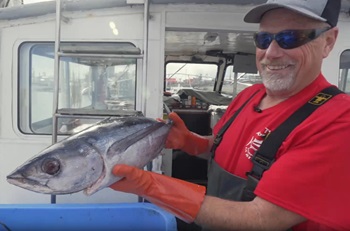 The signs are everywhere as you drive into town, everything from oyster farms to fishing vessels offering up the ocean’s bounty with handmade, roadside advertisements. Westport on Washington’s coast is the place to find a fresh catch. So, the 9th largest commercial seaport in the nation went to work to put some of their bounty directly into the hands of visitors, one fish at a time. Westport’s Fresh Catch is a program that uses its website and a huge dockside sign to show visitors what’s in season – and exactly where to find it when they come to town. For example, craving fresh caught tuna? The sign will guide you to what month it’s generally available (July, August, September and October) and then to the fishing vessel Jetstream on float number 7. This is where Richard Toal sells tuna that he just caught, right off his boat. more, >>CLICK TO READ<< 08:25
The signs are everywhere as you drive into town, everything from oyster farms to fishing vessels offering up the ocean’s bounty with handmade, roadside advertisements. Westport on Washington’s coast is the place to find a fresh catch. So, the 9th largest commercial seaport in the nation went to work to put some of their bounty directly into the hands of visitors, one fish at a time. Westport’s Fresh Catch is a program that uses its website and a huge dockside sign to show visitors what’s in season – and exactly where to find it when they come to town. For example, craving fresh caught tuna? The sign will guide you to what month it’s generally available (July, August, September and October) and then to the fishing vessel Jetstream on float number 7. This is where Richard Toal sells tuna that he just caught, right off his boat. more, >>CLICK TO READ<< 08:25
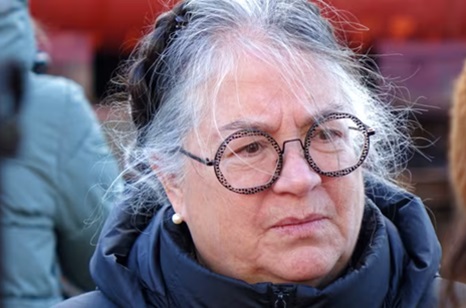
Federal Fisheries minister ignored DFO advice by reopening commercial cod fishery
Federal Fisheries Minister Diane Lebouthillier ignored the advice of staff within her department when she reopened the commercial cod fishery off Newfoundland and Labrador last June. A briefing note dated May 9 reveals that Fisheries and Oceans Canada recommended maintaining the long-time moratorium on northern cod based on scientific evidence, but that political advisors within the minister’s office argued reopening the commercial fishery and hiking quotas would be “politically a victory.” Senior policy advisor Paul Carrigan wrote that DFO staff were concerned about an increase to quotas and the return of offshore boats in the fishery, which would “increase the stocks’ risk of decline.” more, >>CLICK TO READ<< 06:47
Coast Guard urges preparedness ahead of Tropical Storm Francine
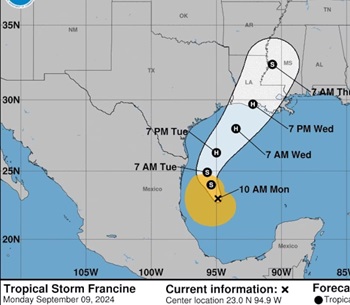 New Orleans – The Coast Guard is preparing, Monday, and will respond to impacts from Tropical Storm Francine as it is expected to strengthen to a hurricane and make landfall along the Louisiana coast on Wednesday. The Coast Guard’s ability to conduct rescues can be diminished or unavailable at the height of a storm. As soon as it is safe to operate after a storm, the Coast Guard, along with our local first responders and federal partners, will provide the life-saving support needed in storm-stricken areas. This includes reconstitution of ports as it becomes safe to do so. The maritime community and boating public are strongly urged to track the storm’s progress and take action to protect themselves and their vessels. Extremely high seas, heavy rains, and damaging winds that accompany tropical storms and hurricanes present serious dangers to the public. more, >>CLICK TO READ<< 12:45
New Orleans – The Coast Guard is preparing, Monday, and will respond to impacts from Tropical Storm Francine as it is expected to strengthen to a hurricane and make landfall along the Louisiana coast on Wednesday. The Coast Guard’s ability to conduct rescues can be diminished or unavailable at the height of a storm. As soon as it is safe to operate after a storm, the Coast Guard, along with our local first responders and federal partners, will provide the life-saving support needed in storm-stricken areas. This includes reconstitution of ports as it becomes safe to do so. The maritime community and boating public are strongly urged to track the storm’s progress and take action to protect themselves and their vessels. Extremely high seas, heavy rains, and damaging winds that accompany tropical storms and hurricanes present serious dangers to the public. more, >>CLICK TO READ<< 12:45






